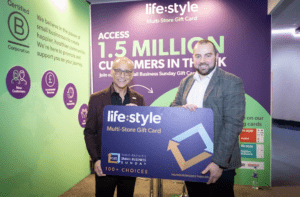Six years ago I was made redundant by Rolls-Royce where I’d worked for 26 years. It was totally unexpected and is a situation that many people are finding themselves in now in all sorts of organisations. Rather than join another company, I decided to set up my own business.
I thought I’d share six thoughts based on my experiences and learning from the past six years. I hope that one or two of them might help people in similar situations to move more quickly through the process. Some of them took me a long time to realise.
Whether you choose to start your own business or to do something else I think they can all apply.
1. Clarity. Be clear on why you’re choosing to do what you do.
Obviously everyone’s situation is unique and personal, but my decision has been a trade-off of a high and regular salary, holiday pay, sick pay, pension, car, etc. for things that I value in different ways. These are freedom, flexibility, autonomy, choice, variety and being free of bureaucracy.
I knew that if I didn’t give it a go I’d look back and regret not trying it.
What do you value?
2. Focus. Be very specific about the service you offer.
This took me about three years to realise. I knew I wanted my business to be in training and development. But my experience meant I could offer services from organisation and people development, team building, leadership training, facilitation, coaching and change management, to talent identification, succession planning, strategy and process design.
My services also applied to businesses of any size – from sole trader to large corporates.
The list went on. Too long. But I was afraid of missing opportunities.
However, you can’t be all things to all people. It was difficult to describe succinctly what I did when I made my elevator pitch. It wasn’t clear and a lot was jargon. It was hard to see the value I added.
I realised my focus was to help businesses build and develop high performing teams. It was easy to describe and people knew what a team was. It started conversations, opened doors and generated opportunities.
Having a focus doesn’t mean I can’t, and don’t, offer a range of services to a range of individuals and organisations. I can still offer all those once I start having discussions and working with a customer.
What’s your focus?
3. Value your time.
This may be more relevant for individual business owners, but the principle applies to any business. A lot of owners will be looking at how their employees spend time. It will vary on your business model, your product or service and how you generate income.
Decide the level of annual salary you want and work out your hourly rate. Remember to allow for holidays and that you probably won’t generate income every day.
For example, a salary of £40,000 could equate to an hourly rate of £36.25 (assuming 6 weeks holiday, generating income 3 days a week). This is to cover your desired salary, not any business costs. It’s quite scary.
Now think about how you spend time when you’re not earning. Networking, coffees, travel, writing LinkedIn posts, looking at Facebook, doing emails. How much do they cost you?
That two-hour networking event you paid £15 for may have cost you over £100 by the time you’ve got there and back.
You have to decide whether it’s a good investment for your business. It may not be a financial return you’re looking for, but it will make you think. Are you getting the return you want on the time you invest? What could you have been doing as an alternative to move your business forward?
Manage your time flow as well as your cash flow.
Is how you spend your time moving you towards where you want to be?
4. Keep learning. Have an apprentice mentality.
Moving from a senior level position to being a nobody in my new business world came as a real shock.
I’d never run a business before. I’d never had to do sales and marketing, accounts, VAT, social media, networking, offer development, tenders or proposals. I was learning from scratch. I was an apprentice.
I sought out help, advice, feedback and mentoring. I applied what was relevant to my situation. I observed how other people did things and what they did – those who’d been in business several years and those who were just setting up. I tried things out to see what worked and what didn’t for me and learnt from it.
People will give feedback, advice and opinion with the best of intentions – whether you want it or not! But always remember you have a choice who you listen to and how you act on what they say.
I’m happy take time to share with others what did and didn’t work for me, and also what I continue to learn, because people took the time to help me. They can then choose whether it’s right for them.
Are you listening to the right people for you and your situation?
5. Volunteer.
This area has a different focus and I fully recognise that people’s circumstances will vary.
Running your own business gives you greater choice, flexibility and control over your time. You could choose to use some of your time as an opportunity to share your experience and expertise by volunteering.
As well as adding value to an organisation or individual you help, volunteering can build your skills and confidence in areas that are important and linked to what you do in your business. The most effective way to develop is by actually doing and applying the thing you want to get better at.
I’m a trustee of a charity, I deliver presentations and workshops for ‘Our Future Derby’ and ‘Inspiring the Future’ in schools, I mentor business owners through Staffordshire Chamber of Commerce, I’m the Vice President of the Professional Speaking Association Staffordshire group and I’ve mentored university students in Derby and Nottingham.
Being involved in these activities has expanded and developed my skills. They’ve made me think differently and more creatively about problem solving and generating ideas. Some have put me in situations I definitely wasn’t comfortable in.
Is there anything you would be willing and able to volunteer for?
6. Enjoy it.
If you have the opportunity, and decide to set up your own business, choose to do something you really enjoy.
If you enjoy what you do you’ll dedicate more time to it. It will feel easier. You’ll practice it more, learn more about it and become better at it. It will make you feel better. You’ll then enjoy it more…. It’s a virtuous circle.
I set up to do the work I enjoy doing and not the other things I had to do as part of my corporate role.
What do you really enjoy doing that you could turn into a business?
If you don't want to start a business, how could you build it into your next career move?
During the past six years I’ve met some great people and worked with some great businesses and organisations. And I’ve learned a lot.
Thank you to everyone who’s been involved in my journey so far.


